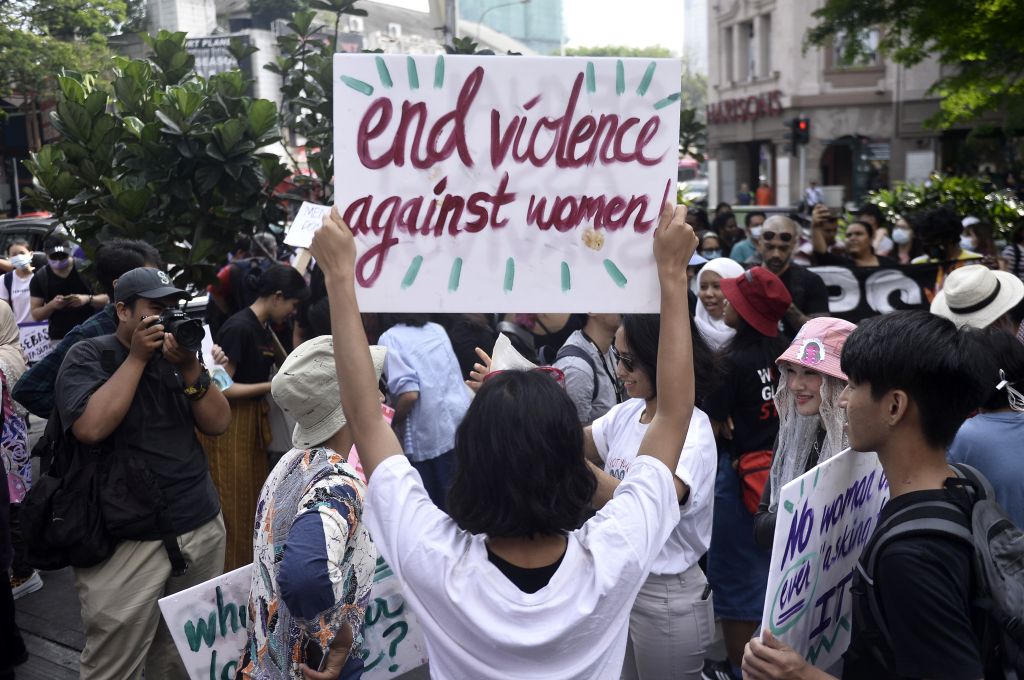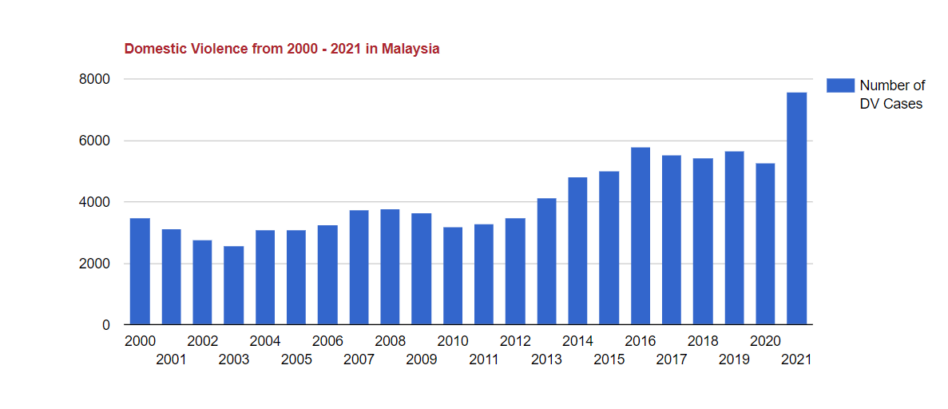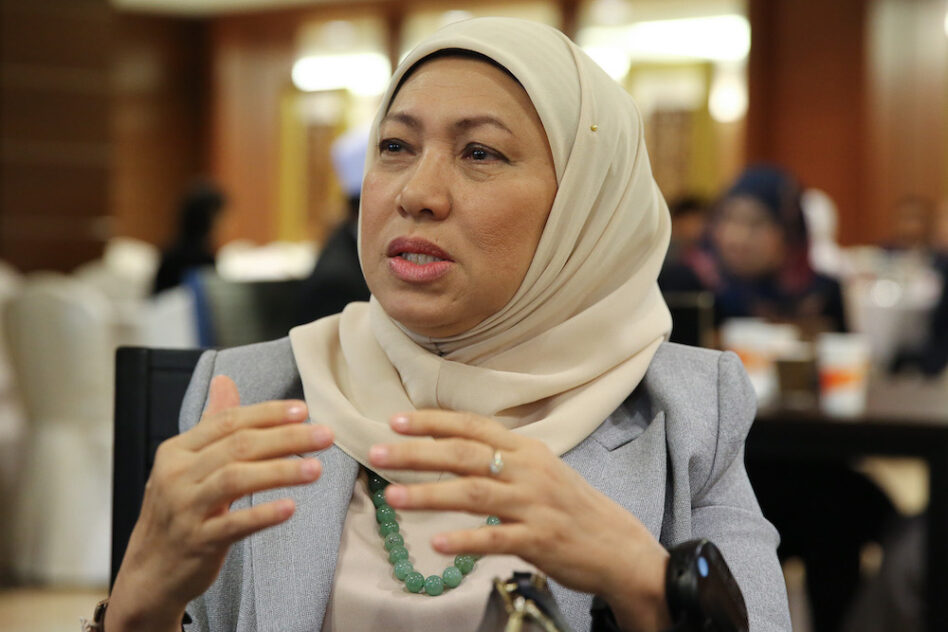
A POIGNANT video circulating on social media captures Nur Farah Kartini’s mother departing from her daughter’s grave, her eyes brimming with tears and her heart irreparably shattered.
Her youngest and only daughter, lost forever. The depth of this pain is unimaginable for most mothers.
Another video shows a mother tearfully confronting her son-in-law with a quivering voice, “Anaas, tu anak ibu,” (Anaas, that’s my child).
This haunting query reverberates in our minds as she too grapples with the devastating loss of her daughter, Nisya Syahkila, brutally murdered by her husband for seeking a divorce.
The tragic case of Nur Farah Kartini Abdullah epitomises the horrific reality of domestic violence in Malaysia.
Nur Farah Kartini, a 25-year-old in Perak, was reported missing in Tanjung Malim. On July 15, her body was discovered in an oil palm plantation in Kampung Sri Kledang, Hulu Selangor.
A 26-year-old policeman, alleged to be her boyfriend, was apprehended under Section 302 of the Penal Code for murder and charged accordingly.
In another grievous instance, Nisya Syahkila, a 32-year-old woman, was fatally stabbed by her husband in a hotel in Pekan Batu Gajah.
Nisya had previously lodged a police report due to criminal threats from her husband, including threats of murder. She lived in constant terror, receiving frequent threats via WhatsApp messages and voice notes.
Seeking a divorce due to physical abuse, which also impacted her 9-year-old son from a previous marriage, Nisya was tragically murdered on the very day she and her husband were scheduled to attend a Syariah Court proceeding for divorce.
The victims in these cases are all young women, whose lives have been tragically cut short by young men. This raises critical questions: What systemic issues are contributing to this crisis?

How are our young men developing into individuals capable of such violence against their partners? What perceptions do these men hold about their partners? Is there a pervasive belief that women are inferior, subservient, disposable, or merely objects to be owned?
If the current trends persist and the underlying issues remain unaddressed, the number of these tragic deaths will continue to rise.
This situation reflects a deep-rooted problem within Malaysian society. For years, women have been subjected to demeaning and oppressive cultural narratives, such as the saying, “paradise is at your husband’s feet”.
Such statements have pressured women to stay in abusive marriages and stigmatised divorce, contributing to their continued subjugation and vulnerability.
Our outdated laws embody this mindset: women are required to have guardians and must endure complex procedures to obtain a divorce, whereas a man can divorce instantly.
Women still do not have an equal presence in decision-making roles. They are often relegated to subordinate positions, not due to a lack of intelligence or capability, but simply because of their gender.
In Islamic teachings, women are regarded as equal to men. In Islam there is absolutely no difference between men and women as far as their relationship to Allah is concerned, as both are promised the same reward for good conduct and the same punishment for evil conduct.
Therefore, it is imperative to question why societal norms continue to impose inequality upon women.
These devastating cases highlight the urgent need for heightened awareness, robust support systems, and stringent legal measures to protect victims of domestic violence.
The prevalence of domestic violence in Malaysia is both alarming and heartbreaking. A systematic review of research studies in Malaysia reveals that the prevalence of intimate partner violence (IPV) ranges from 4.94% to 35.9%.
A study conducted by Universiti Sains Malaysia (USM) in 2014 disclosed that 9% of ever-partnered women in Peninsular Malaysia have experienced domestic violence at some point in their lifetime.
According to the graph below, there is a steady rise in Domestic Violence cases between 2000 –2021:

Source: WAO
Domestic violence manifests in various forms, with emotional or psychological abuse being the most prevalent. Other forms include physical harm, sexual violence, and controlling behaviour by partners.
Several risk factors contribute to the prevalence of domestic violence, including lower education background and socio-economic status, history of substance abuse by either partner, exposure to prior abuse or violence, violence-condoning attitudes, controlling behaviour by husbands or partners, and lack of social support.
Underreporting remains a significant obstacle in addressing domestic violence. Social stigma and fear often prevent victims from reporting incidents, as they fear retaliation or ostracism.
Women, Family and Community Development Minister Datuk Seri Nancy Shukri’s recognition of the issue is crucial.
Her acknowledgment that domestic violence is often perceived as a family or personal problem underscores the cultural and social barriers that victims face. This perspective highlights the necessity for a multifaceted approach to address domestic violence effectively.

A societal reset is imperative regarding patriarchy and the perception boys and men have of women’s roles and representation.
Such cases will continue to occur, and although perpetrators are brought to justice, this does not seem to deter others from committing similar acts. Consequently, the lives of young women are tragically lost.
Women are enduring domestic violence, and inadequate measures are in place, with minimal discourse on these issues as they are often dismissed as “women’s issues”. It is imperative to confront these brutal realities and strive towards creating a Malaysia where women are seen, heard, and valued equally.
Policymakers, communities, and individuals should unite in raising awareness and advocating for change to ensure that no one suffers in silence. Together, we can create a safer Malaysia for all women.
Ameena Siddiqi is a media and publishing professional with over 20 years of experience. She is also the Communications Manager of Sisters in Islam (SIS).
The views expressed are solely of the author and do not necessarily reflect those of MMKtT.
- Focus Malaysia



No comments:
Post a Comment
Note: Only a member of this blog may post a comment.